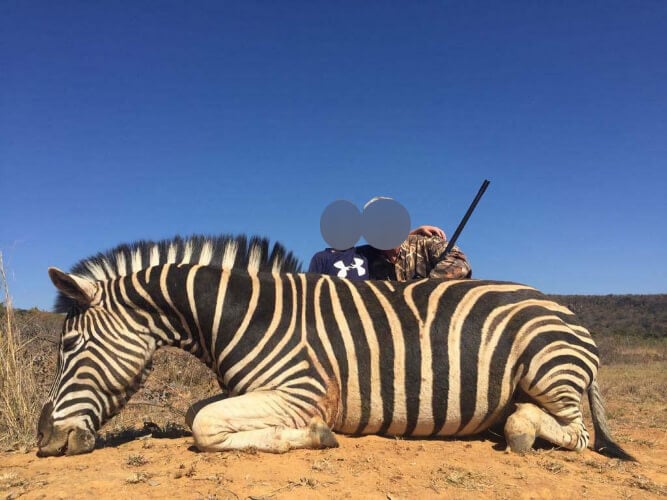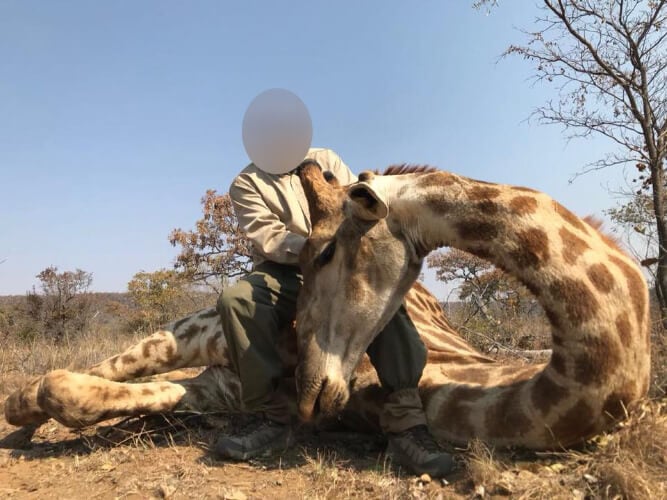PETA Investigates How South African President Secretly Profits From Trophy Hunting
See the shocking footage for yourself, and then take action to help stop elephants, lions, rhinos, Cape buffalo, and other wonderful but vulnerable animals from being shot in cold blood and dying in agony just to give trophy hunters a sick thrill.
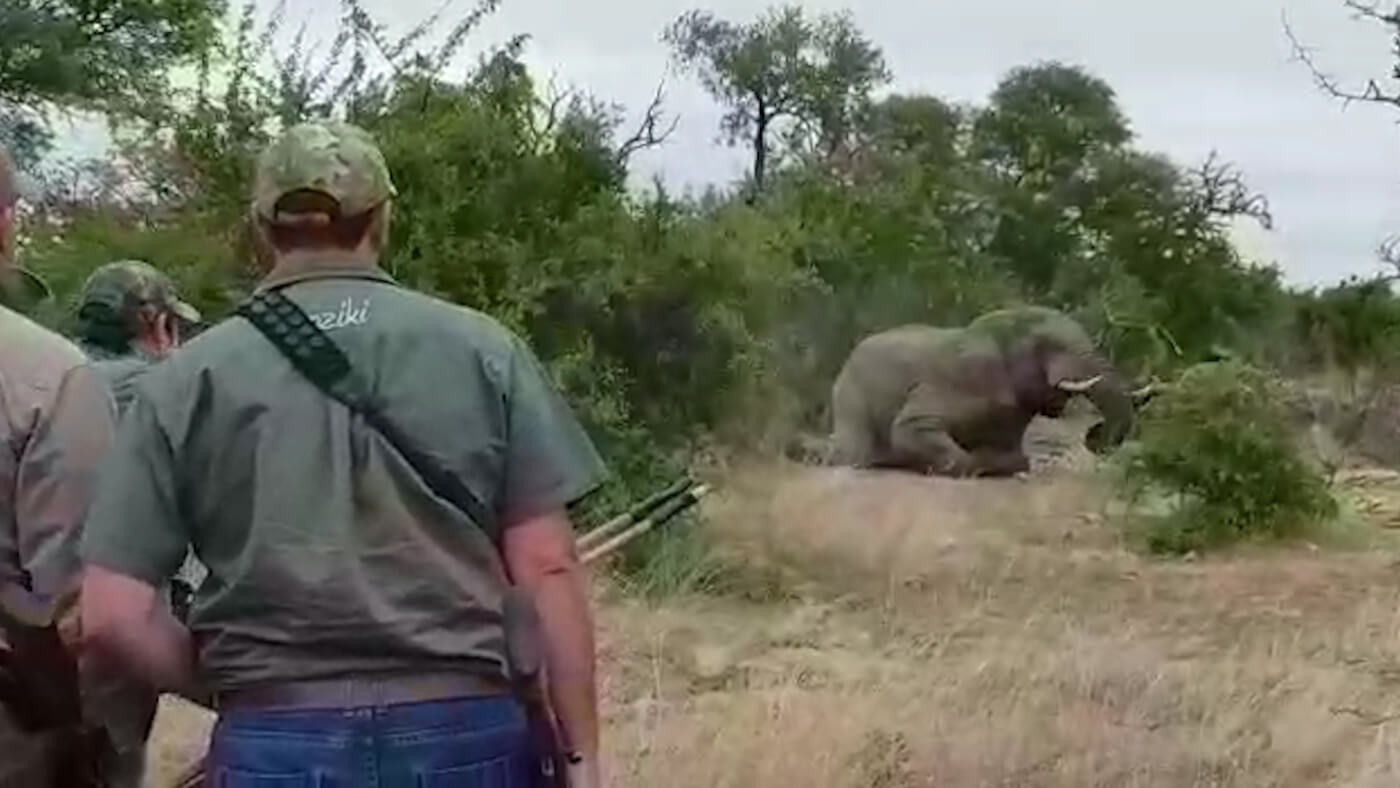
Trophy hunters and others who make a living selling hunting trips and accessories like to claim that they kill animals in the name of “conservation” or, patronizingly, to support “natives”—but as this just-breaking PETA video shows, hunting has nothing to do with respecting wildlife and everything to do with taking sadistic pleasure in needlessly taking life.
Following an undercover investigation, PETA has revealed South African President Cyril Ramaphosa’s hidden connections and investments in the trophy hunting industry and obtained video footage of an American trophy hunter who repeatedly shoots a young elephant just outside Kruger National Park.
Trophy Hunting Lining a Top Politician's Pockets
PETA’s secret investigation has uncovered South African President Cyril Ramaphosa’s hidden connections and investments in the trophy hunting industry.
Footage reveals that Ramaphosa is quietly developing and expanding a trophy hunting property called Diepdrift—stocking it with animals from his own wildlife breeding operation, Phala Phala—and that he owns a 50% stake in Tsala Hunting Safaris. In other words, far from “conserving” wildlife, wild animals are bred specifically to be killed for trophies. PETA recorded conversations in which Ramaphosa’s managers admitted that he shares equally in the profits from all hunts conducted through Tsala and spoke of the importance of concealing his involvement.
One manager said,
“We try to keep the president’s name actually out of the hunting thing because … of all the greenies …. So he wanna spare himself this, how can I say, bad publicity and all of that.”
Elephant Just Outside National Park Slaughtered by American Trophy Hunter
President Ramaphosa’s Tsala Hunting Safaris routinely organizes elephant hunts through Wayne Wagner Safaris on properties of the Greater Kruger Conservancy. PETA obtained video footage of an American trophy hunter attempting to gun down a curious young elephant who had peacefully ambled out of the bush on one of the hunts on these properties. The hunter takes his first shot, and the elephant falls to his knees and looks straight at the hunting party. He continues to suffer as the American—who paid $30,000 for this sick thrill—takes his time. The guides attempt to help him with his aim, and then he shoots the helpless elephant four more times, causing him to rumble in distress. How many more shots were fired and how long the elephant suffered before finally dying is unknown. The hunter later paid $20,000 to have his body parts preserved for shipment to the United States.
PETA has filed a request for an investigation into whether the prolonged death of the elephant shown in the video constitutes a cruelty-to-animals violation of the South African hunting permit.
The American hunter killed the elephant just outside the famous Kruger National Park in South Africa where no hunting is allowed. There are no fences, by design, so animals who inadvertently cross the boundary from the park to the reserve are no longer protected. Hunters’ guides often wait for this to happen or track the movements of the elephants in the park so that they will know exactly when the animals are unwittingly putting themselves in harm’s way.
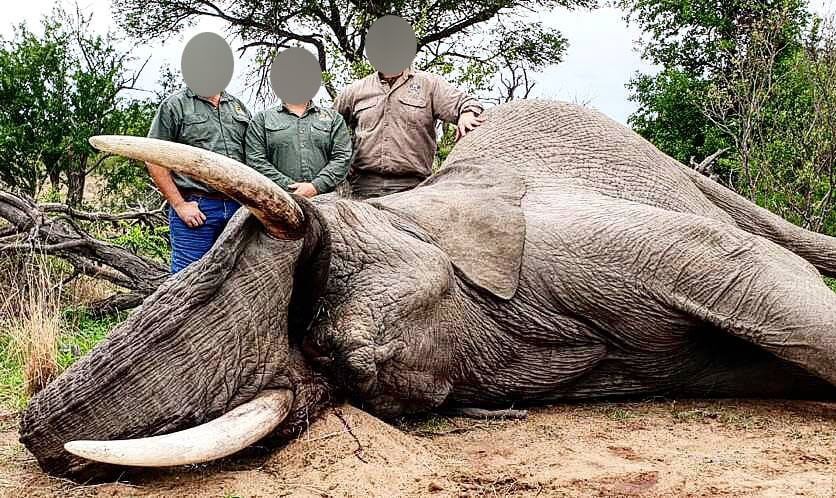
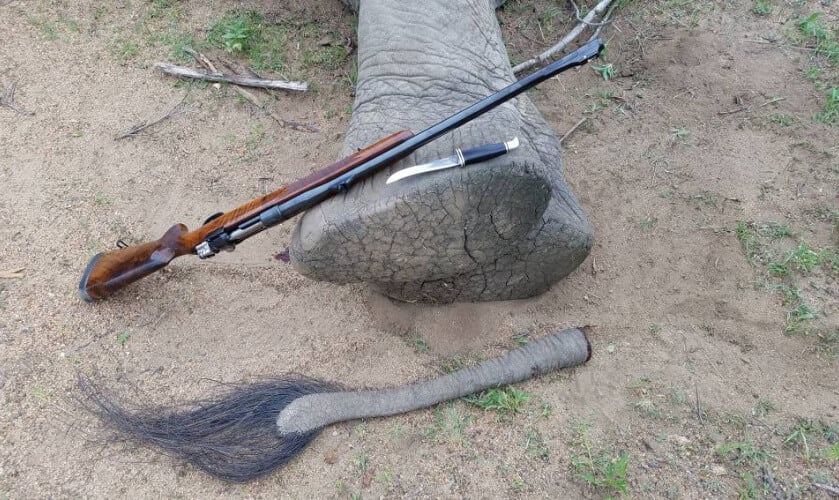
Killing Wildlife for 'Sport'
Trophy hunters pay thousands of dollars to shoot animals, including antelopes, baboons, buffaloes, giraffes, hippos, and zebras, through Tsala Hunting Safaris. Earlier this year, a Dutch doctor and his wife slaughtered a buffalo, a bush pig, a kudu, and several impalas during a Diepdrift hunting safari. Hundreds of animals are also killed at Phala Phala by the property manager, and their flesh is sold as exotic game meat.
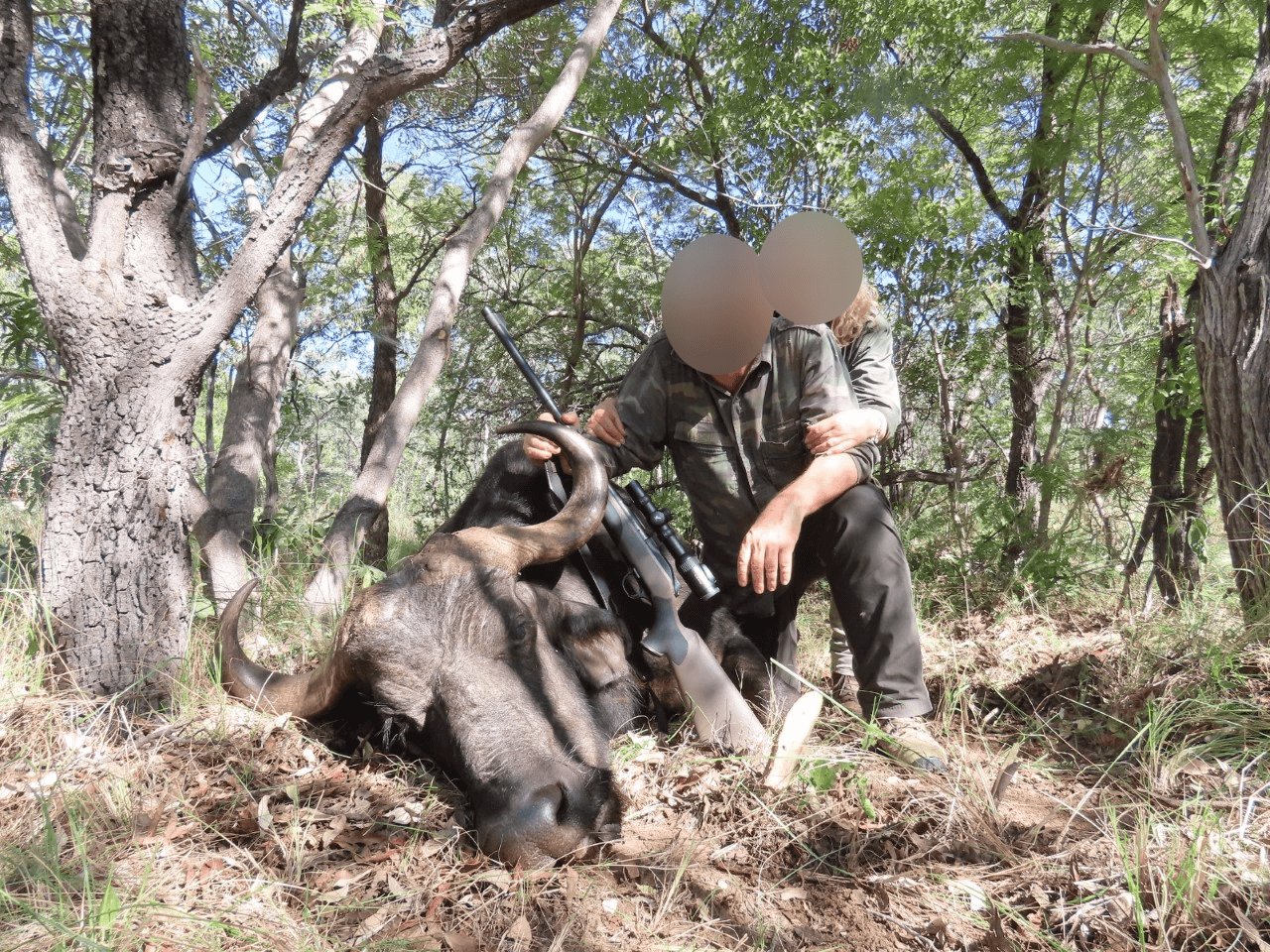
Shooting Lions in a Barrel
The animals have no chance of escaping a hunter’s bullet, and no animals are off limits. Tsala conducts lion and elephant hunts on other properties in South Africa and also organizes leopard hunts in Mozambique and Namibia. A Tsala representative told PETA’s investigator that the company could even make special arrangements to acquire rhinos to hunt.
Like the animals bred at Phala Phala and hunted at Diepdrift, many of the lions hunted by Tsala clients are captive-bred, meaning they are habituated to humans.
One video shows a group of hunters ambushing a captive-bred lion resting under a tree. The lion roars and charges after he is shot and wounded by the hunter, and it takes four more shots by the hunter and his guides to kill him.
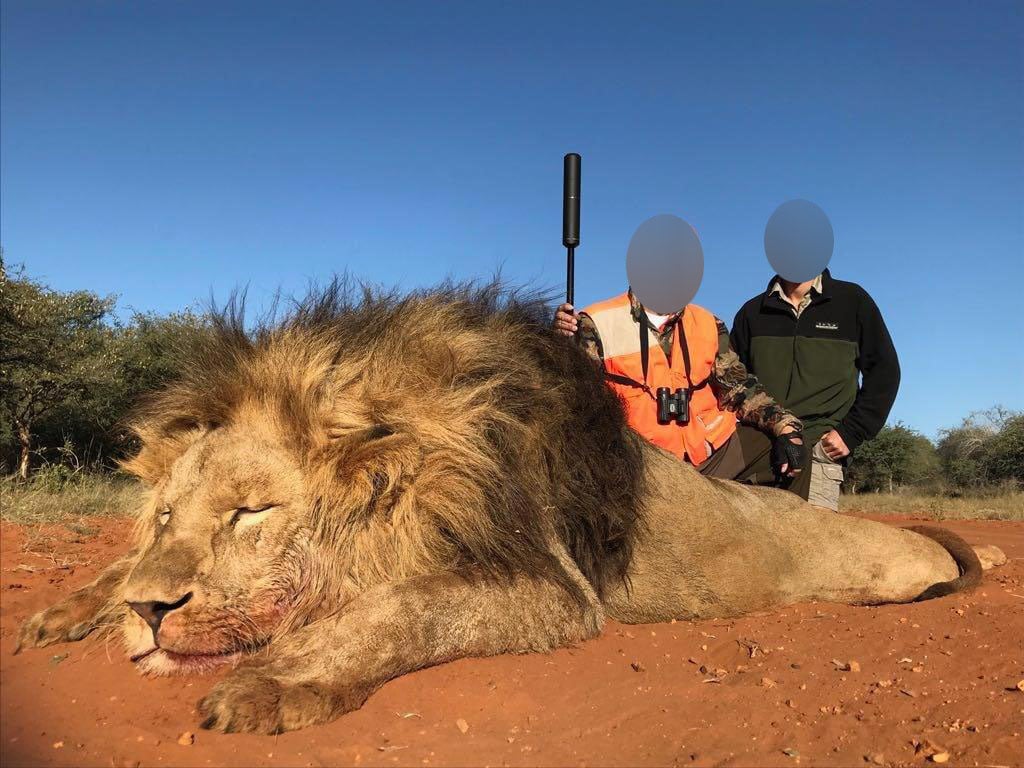
What You Can Do
All animals are beloved by their own mates and offspring, but to hunters they are only the sum of their body parts, seen simply as living targets to kill, decapitate, and display on the wall. You can help wild animals by demanding an end to trophy hunting.
Do more: Animals shot by trophy hunters often endure a prolonged and painful death—simply so that hunters can chop off their heads and other body parts and send them back home as trophies. By allowing hunters to ship these macabre items, UPS is supporting the slaughter of magnificent animals.
Please use the form below to urge UPS to ban the shipping of hunting trophies. UPS has banned the transport of not only shark fins and certain live animals but also ivory—and if it can ban an animal’s tusks, surely it can ban the head and other body parts, too.

